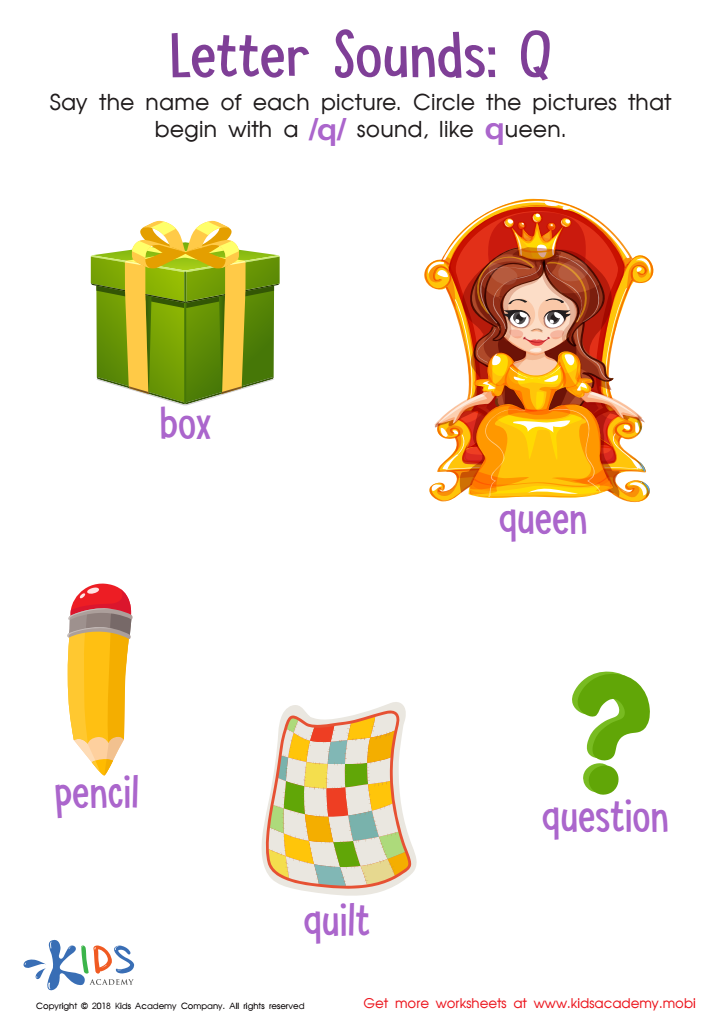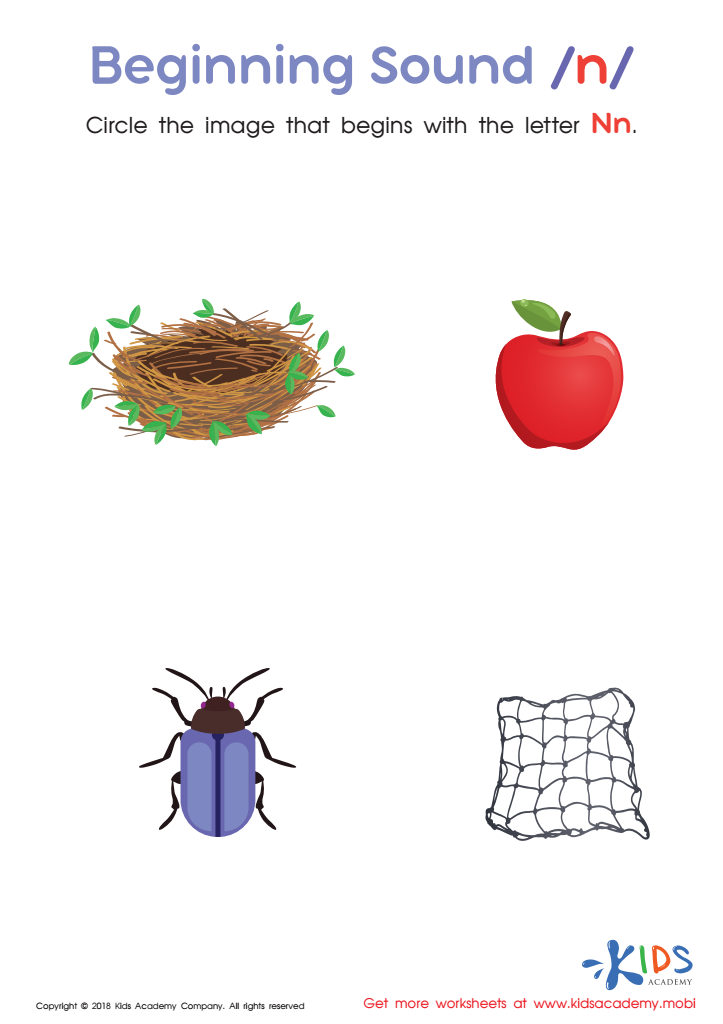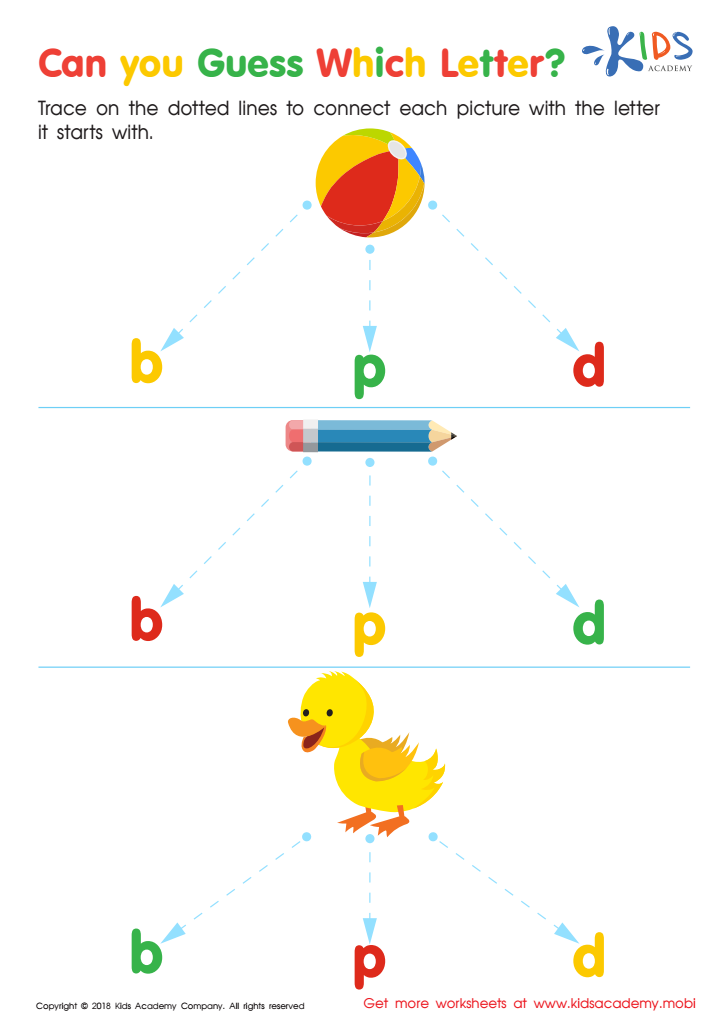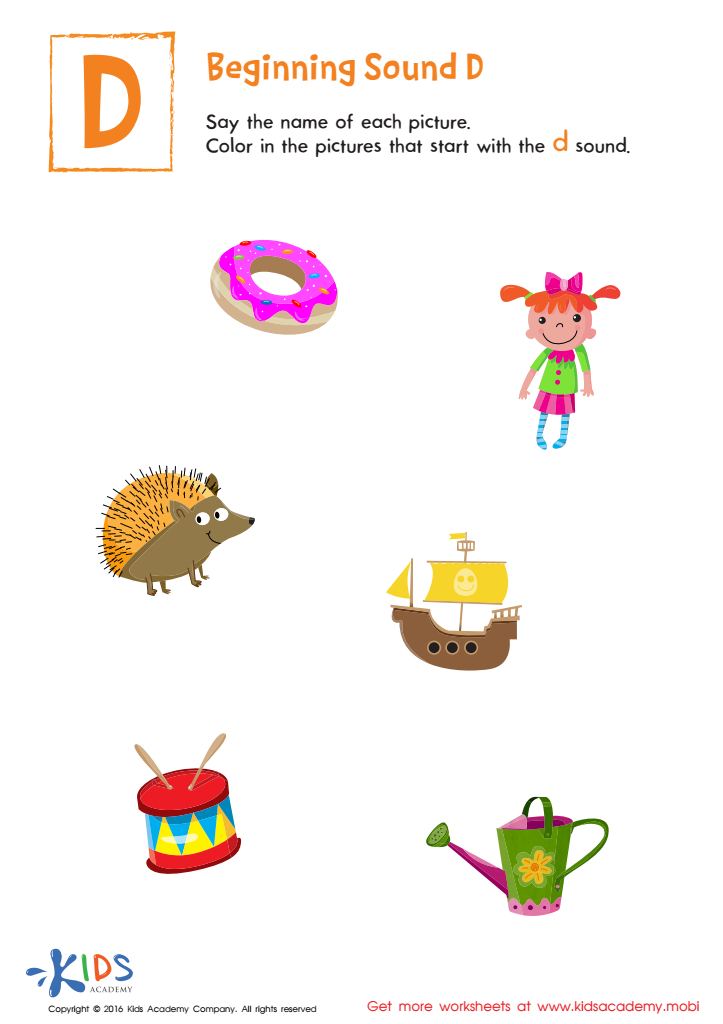Reading readiness Normal Phonics Worksheets for Ages 4-9
5 filtered results
-
From - To
Discover our engaging "Reading Readiness Normal Phonics Worksheets" designed for children ages 4-9! These worksheets are perfect for nurturing essential phonics skills, helping young learners recognize letters, sound out words, and build foundational reading abilities. Each worksheet comes with colorful illustrations and age-appropriate activities that cater to various learning styles. Encourage your child's love for reading as they practice letter recognition, phonemic awareness, and word building in a fun, interactive way. Our worksheets are easy to use at home or in the classroom. Jumpstart your child's reading journey with our high-quality phonics resources today!


Letter Q Sounds Worksheet


Beginning Sound «n» Worksheet


Can you Guess Which Letter? Worksheet


Phonological Awareness: Assessment 1 Worksheet


Beginning Sound D Worksheet
Reading readiness is a crucial developmental milestone for children aged 4-9, serving as the foundation for lifelong learning and literacy skills. Parents and teachers should prioritize Normal Phonics, as it equips young learners with the fundamental skills necessary for decoding words and understanding language.
First and foremost, the ability to read affects a child’s academic success across all subjects. Reading readiness gives children the tools to absorb information, follow instructions, and engage with text in meaningful ways. Early familiarity with phonics builds essential skills like phonemic awareness, which helps children recognize the sounds within words, ultimately paving the way for fluent reading.
Moreover, the emotional and social benefits of early literacy cannot be overlooked. Children who are confident in their reading skills often participate more actively in classroom discussions and social interactions, fostering a love for learning. This confidence can significantly impact their self-esteem.
Additionally, teaching phonics can cultivate parent-child bonding. Engaging in reading activities together promotes shared experiences and discussions that enhance comprehension. With the lifelong implications of reading on a child's personal and academic life, parents and teachers should focus on effective phonics instruction to ensure a brighter future for every child.

 Assign to My Students
Assign to My Students




















